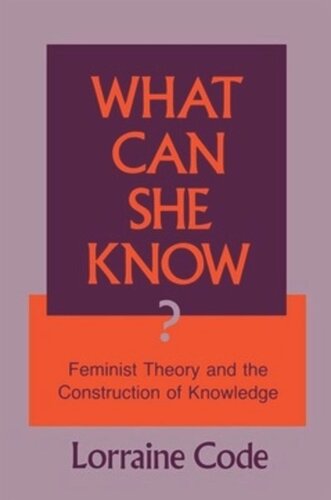

Most ebook files are in PDF format, so you can easily read them using various software such as Foxit Reader or directly on the Google Chrome browser.
Some ebook files are released by publishers in other formats such as .awz, .mobi, .epub, .fb2, etc. You may need to install specific software to read these formats on mobile/PC, such as Calibre.
Please read the tutorial at this link: https://ebookbell.com/faq
We offer FREE conversion to the popular formats you request; however, this may take some time. Therefore, right after payment, please email us, and we will try to provide the service as quickly as possible.
For some exceptional file formats or broken links (if any), please refrain from opening any disputes. Instead, email us first, and we will try to assist within a maximum of 6 hours.
EbookBell Team

4.7
96 reviewsIn this lively and accessible book Lorraine Code addresses one of the most controversial questions in contemporary theory of knowledge, a question of fundamental concern for feminist theory as well: Is the sex of the knower epistemologically significant? Responding in the affirmative, Code offers a radical alterantive to mainstream philosophy's terms for what counts as knowledge and how it is to be evaluated.
Code first reviews the literature of established epistemologies and unmasks the prevailing assumption in Anglo-American philosophy that "the knower" is a value-free and ideologically neutral abstraction. Approaching knowledge as a social construct produced and validated through critical dialogue, she defines the knower in light of a conception of subjectivity based on a personal relational model. Code maps out the relevance of the particular people involved in knowing: their historical specificity, the kinds of relationships they have, the effects of social position and power on those relationships, and the ways in which knowledge can change both knower and known. In an exploration of the politics of knowledge that mainstream epistemologies sustain, she examines such issues as the function of knowledge in shaping institutions and the unequal distribution of cognitive resources.
What Can She Know? will raise the level of debate concerning epistemological issues among philosophers, political and social scientists, and anyone interested in feminist theory.